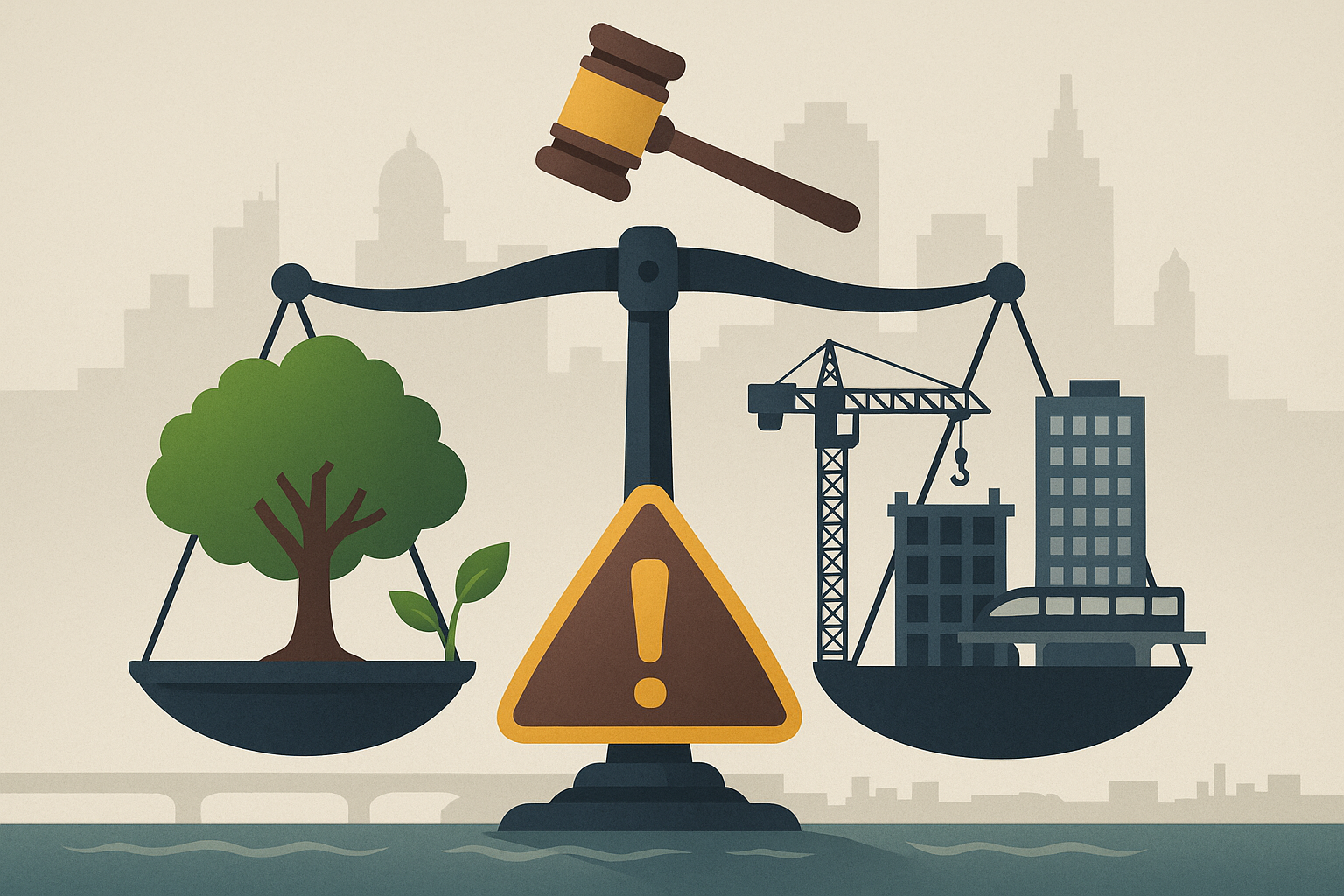
Bombay HC Proposes Special Committee to Oversee Tree Cutting in Mumbai Development Projects
Mumbai: The Bombay High Court has proposed the creation of a special committee to oversee tree cutting for development projects in Mumbai and its suburbs, in a bid to ensure that urbanisation does not come at the expense of the environment. The bench of Justice Revati Mohite-Dere and Justice Dr. Neela Gokhale expressed concern over the large-scale felling of trees for infrastructure projects and suggested that a balanced mechanism be put in place.
A Panel with Retired Judges and Experts
According to the court’s proposal, the committee would comprise retired judges, representatives of reputed social organisations, and officials from the state environment department. Its primary role would be to evaluate proposals involving the cutting of a large number of trees or shrubs, particularly those connected to major public infrastructure works.
The committee would not only review such proposals but also suggest alternatives aimed at reducing ecological damage. This includes recommending design changes or exploring other measures that can help minimise tree felling. The bench observed that “development in public interest cannot mean neglect of the environment,” and stressed that regulatory safeguards are necessary.
Timing of Recommendations Critical
One of the important aspects raised by the bench was the timing of such recommendations. The judges directed the state government to clarify at what stage the panel’s suggestions should be incorporated. The bench noted that these recommendations must be sought early enough to influence project design and planning, rather than being considered after approvals have been granted and work has commenced.
The court has now asked the state government to file a detailed reply outlining whether it agrees with the idea of setting up such a committee. If accepted, the government will also have to define the committee’s powers, its structure, and how its recommendations will integrate with the project approval process. The matter has been listed for further hearing on September 3, 2025.
A Balancing Act Between Development and Ecology
Mumbai has witnessed an unprecedented scale of urban expansion in recent decades, with metro rail projects, highways, flyovers, and housing schemes altering the city’s landscape. However, many of these projects have been accompanied by large-scale tree felling, leading to criticism from environmentalists.
The High Court, while recognising the importance of infrastructure growth, underlined that unchecked tree cutting can have long-term ecological consequences. Trees act as natural carbon sinks, regulate air quality, and prevent flooding — all of which are vital for a city like Mumbai that already struggles with pollution and heavy monsoon rains.
The proposed committee, if formed, could serve as a watchdog to ensure that environmental concerns are factored into urban planning decisions, rather than being sidelined.
Environmentalists Welcome Move
The court’s proposal has been welcomed by environmental groups and activists, many of whom have been campaigning against indiscriminate tree cutting. “This is a very positive step,” said one Mumbai-based environmentalist. “Often, environmental clearances are treated as a formality, and projects are executed without giving due thought to alternatives. Having retired judges and independent organisations involved in the decision-making process will bring more accountability.”
Experts point out that Mumbai and Maharashtra have lost a significant portion of their green cover in the last two decades. Satellite imagery has revealed shrinking mangrove patches, depleted urban forests, and widespread conversion of green spaces for roads and construction projects. Environmentalists hope the court’s intervention will help slow down this trend.
Awaiting Government’s Response
The state government’s response will be crucial in determining whether such a panel will materialise. Legal experts note that while the court can suggest and even direct the formation of committees, the final framework will depend on the state’s willingness to adopt these measures.
If the government agrees, the committee could set a precedent for other states grappling with the same challenge — balancing rapid urbanisation with ecological preservation. The upcoming hearing on September 3 is expected to shed light on how the state intends to move forward.
Conclusion
The Bombay High Court’s proposal for a special committee reflects a growing judicial emphasis on sustainable development. In a city where trees are often the first casualty of progress, the move is seen as a much-needed safeguard to ensure that Mumbai’s urban future does not come at the cost of its green lungs. As citizens, urban planners, and environmentalists await the state government’s stand, the debate once again highlights the urgent need to strike harmony between growth and ecology.




